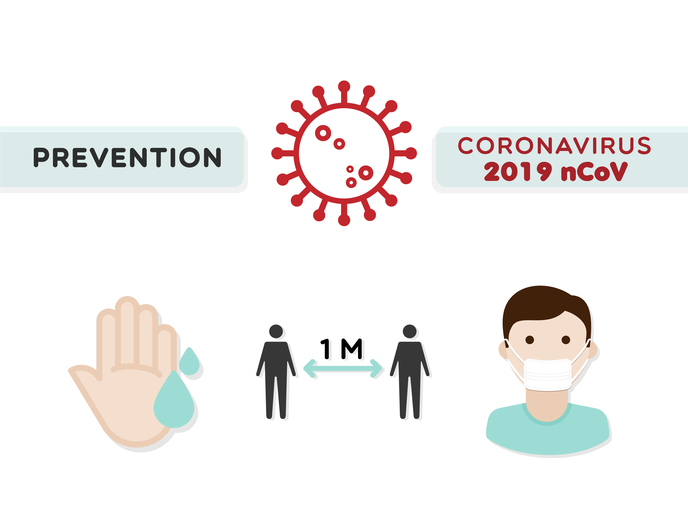Handwashing, wearing masks and physical distancing are best for fighting COVID-19, study finds
As the majority of the world’s population remains susceptible to COVID-19, physical distancing, wearing masks and frequent handwashing have become more critical than ever. In addition to such measures, the World Health Organization (WHO) has been recommending rapid case identification and contact tracing from the start. In a recent media briefing, Director-General Dr Tedros Adhanom Ghebreyesus commented: “Chains of transmission have been broken by combination of rapid case identification, comprehensive contact tracing, adequate clinical care for patients, physical distancing, mask wearing, regular cleaning of hands and coughing away from others.” Partially supported by the EU-funded One Health EJP project, a team of researchers has also highlighted the importance of self-imposed prevention measures. Their findings were published in the journal ‘PLOS Medicine’. “We stress the importance of disease awareness in controlling the ongoing epidemic and recommend that, in addition to policies on social distancing, governments and public health institutions mobilize people to adopt self-imposed measures with proven efficacy in order to successfully tackle COVID-19.”
COVID-19 awareness
In the study, researchers developed a computational model of the spread of COVID-19 utilising existing information about the disease’s epidemiology. “Using a transmission model, we evaluated the impact of self-imposed measures (handwashing, mask-wearing, and social distancing) due to awareness of COVID-19 and of a short-term government-imposed social distancing intervention on the peak number of diagnoses, attack rate, and time until the peak number of diagnoses since the first case.” They state that their findings “will aid public health professionals to compare and select a combination of interventions for designing effective outbreak control policies.” The researchers add: “All self-imposed measures and government-imposed social distancing have an effect on the COVID-19 epidemic dynamics. The qualitative and quantitative impact, however, depends strongly on the prevention measure and the rate of awareness spread.” They “conclude that handwashing, mask-wearing, and social distancing adopted by disease-aware individuals can delay the epidemic peak, flatten the epidemic curve, and reduce the attack rate.” The model didn’t account for demographics or heterogeneity in contact patterns of different individuals. “Our conclusions can therefore be drawn on a qualitative level,” the researchers emphasise. The One Health EJP (Promoting One Health in Europe through joint actions on foodborne zoonoses, antimicrobial resistance and emerging microbiological hazards) project that supported the study will run until December 2022. The One Health European Joint Programme uses an interdisciplinary, integrative and international approach to the one health concept that recognises human health is closely linked to the health of animals and the environment. “Therefore the study of infectious agents that may cross species and environmental barriers to move between these compartments is imperative,” as noted on the One Health EJP project website. The one health approach is particularly relevant for food safety, the control of zoonoses (diseases that can spread between animals and humans), and fighting antibiotic resistance (when bacteria change after being exposed to antibiotics and become more difficult to treat). This approach renders it crucial to develop surveillance and response capacities and strengthen early warning and detection systems to tackle disease outbreaks. For more information, please see: One Health EJP project website
Keywords
COVID-19, coronavirus, mask, zoonoses, social distancing, physical distancing



